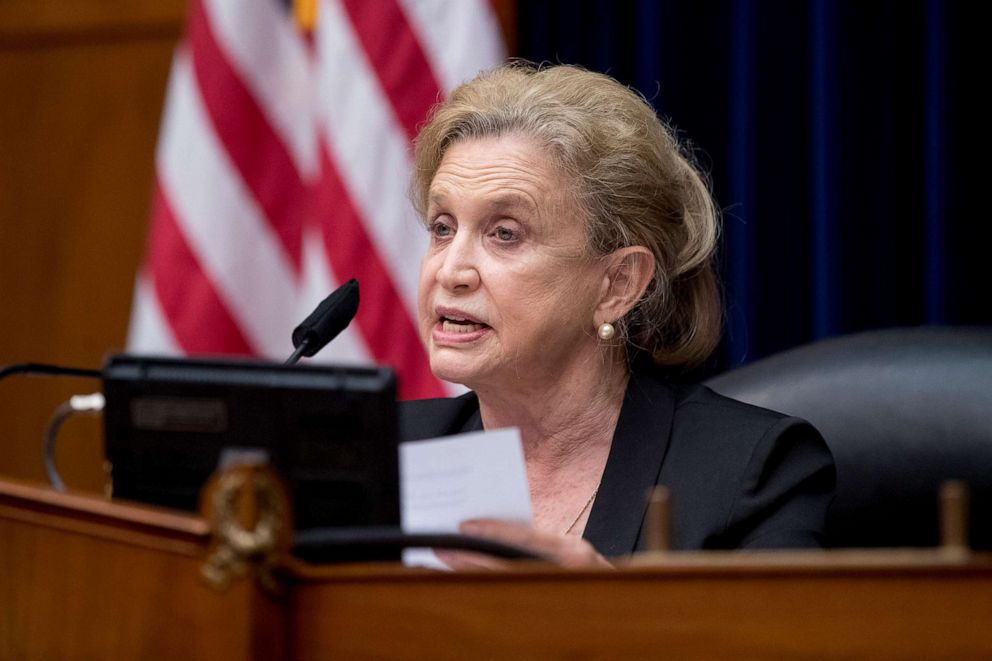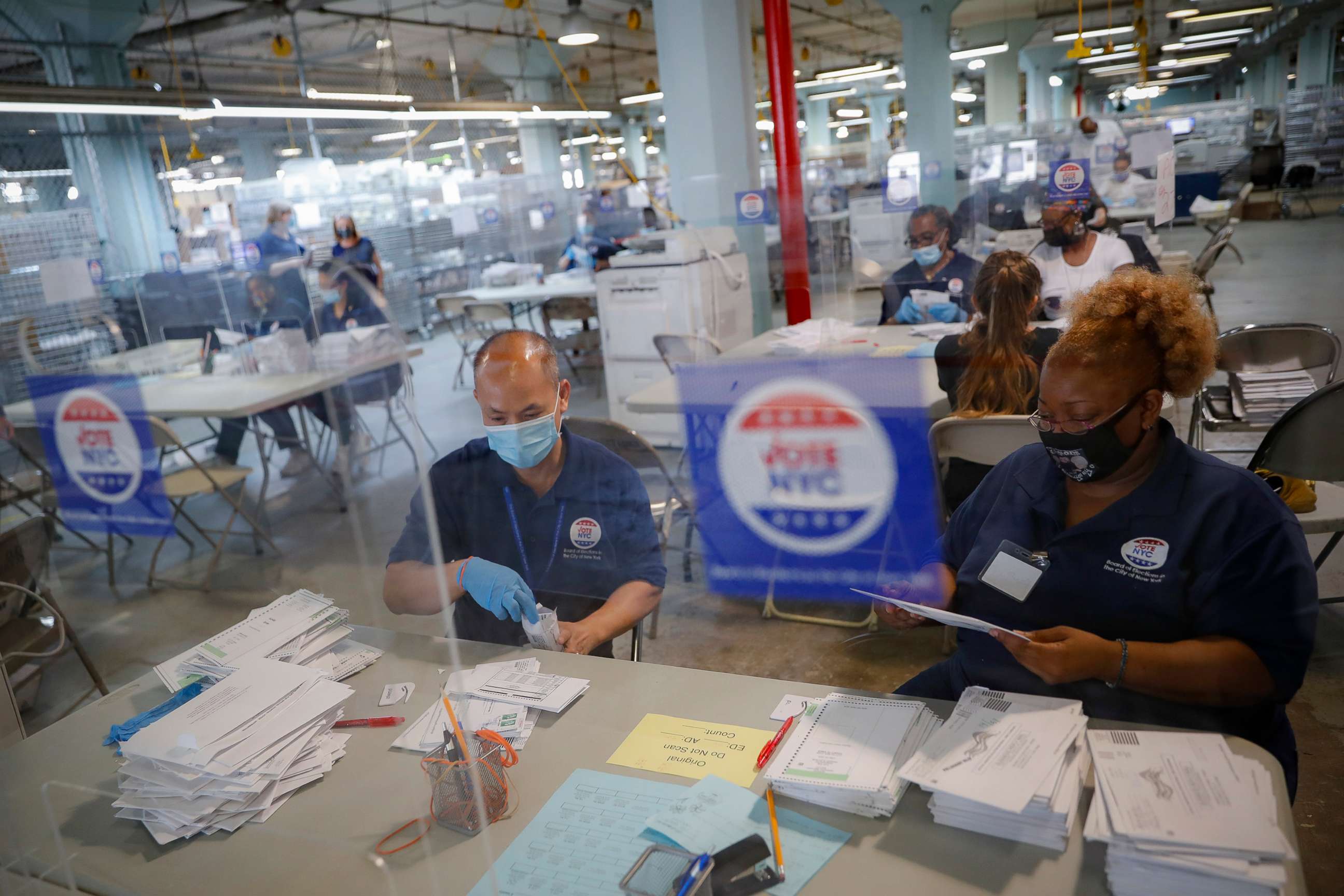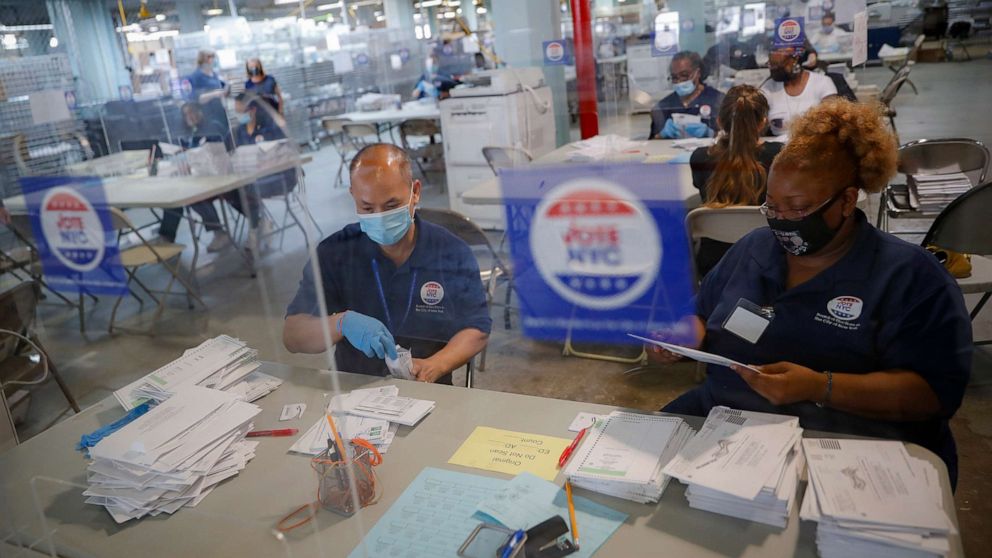Why President Trump keeps talking about a New York Democratic primary
President Donald Trump and the White House have repeatedly highlighted the chaos in the aftermath of the Democratic primary in New York's 12th Congressional District as an example of what the nation could face in November with expanded mail-in voting.
While the primary did not validate Trump's baseless claims that expanding mail-in ballots would taint the results of the election with fraud, the race underscored concerns about how pandemic-related changes to voting could delay the results of the general election.
"It's been a total disaster," Trump said at the White House last week. "I think you have to rerun that race because it's a mess."
It took six weeks for the results of the close race between Rep. Carolyn Maloney, D-N.Y., and attorney Suraj Patel to be certified, after a deluge of absentee ballots overwhelmed election officials, delayed canvassing and prompted a legal battle over the counting of thousands of disputed ballots.
What happened in New York?
Maloney, the chair of the House Oversight Committee, won the race by roughly 3,500 votes, according to The Associated Press' call of the race following the certification of the results.
Patel has refused to concede until every vote is counted, after a federal judge ruled that roughly 1,000 disputed ballots with postmarking issues could be counted in the race. The state plans to appeal the ruling, over concerns about the re-canvassing order.
Roughly 400,000 New York City residents voted by absentee ballot, after Gov. Andrew Cuomo delayed the election for two months due to the coronavirus, and allowed voters to request absentee ballots with postage. Election officials spent several weeks reviewing ballots, with thousands thrown out for issues with postage and signatures.
With the state working to accommodate the unprecedented number of requests for ballots, some voters did not receive them in time, while others were not properly postmarked by the Postal Service and discarded.
To address the concerns ahead of November, state legislators passed a series of reforms, including measures that would require officials notify voters if their ballot has been disqualified and give voters more time to request absentee ballots.
"New York did not have any infrastructure or an expanded absentee program. So the Board of Elections had to completely revise the entire way in which they were approaching absentee ballots in six weeks," Susan Lerner, the executive director of Common Cause New York, a nonpartisan good government organization, told ABC News.

What about voter fraud?
Trump has insisted that mail-in voting is particularly susceptible to fraud, but provided no evidence that it impacted the New York race. Last week, before the results of the race were certified, he suggested that New York re-do the 12th district's Democratic primary.
"I think you probably have to take the Carolyn Maloney race and run it over again," he said.
Maloney and Patel campaign officials said they had found no evidence of voter fraud in the race. Neither did state election officials, according to John Conklin, a spokesman for the New York State Board of Elections.
"It's bogus," Jerry Goldfeder, a veteran New York election attorney, told ABC News of Trump's assertions about the New York primary.
Patel, who faced criticism from Maloney that his refusal to concede was elevating Trump's comments about the race, pushed back on the president's assertions.
"Everyone should be vigilant and know that our fight is the exact opposite of Donald Trump's. We are fighting against voter disenfranchisement. He is basically claiming voter fraud comes with vote by mail," Patel told reporters last week about his legal challenge to the invalidation of thousands of ballots in the district.

Could it happen in November?
While many of the concerns with New York's primary can be traced back to issues with the state's unique election laws and rollout of coronavirus-related changes to voting, experts and members of both political parties are girding for the possibility that the final results of the general election won't be known for days or weeks -- if not months -- due to the expected high number of absentee ballots that will need ti be counted.
If there's a lesson to be drawn from the contested New York primary, it's that states shouldn't wait until November to prepare for the election, especially those states that don't have experience dealing with significant levels of absentee voting.
"Each state needs to remedy its problems in its own way," Goldfeder said. "Beef up staffing of boards of elections -- make sure there are enough personnel to evaluate absentee ballots and count them in a timely way."
Voters "shouldn't wait to request their ballot and they shouldn't wait to return it," Tammy Patrick, a senior advisor for Democracy Fund, a voting rights group, told ABC News.
Experts also worry that problems the Postal Service had handling absentee ballots in New York could be replicated across the country. Those concerns come amid questions about the agency's funding and the new postmaster general -- a GOP donor who has implemented cost-saving measures at the agency that union officials have said will delay delivery times and could potentially affect how quickly ballots will be delivered in the fall.
"For legislators and policymakers, the message is the same: Don't wait to align your policies until a close election and a contentious recount or a debacle on Nov. 4," Patrick continued. "You still have time to allow election officials to start counting early and processing those ballots."
What to know about the coronavirus:
- How it started and how to protect yourself: Coronavirus explained
- What to do if you have symptoms: Coronavirus symptoms
- Tracking the spread in the U.S. and worldwide: Coronavirus map
Tune into ABC at 1 p.m. ET and ABC News Live at 4 p.m. ET every weekday for special coverage of the novel coronavirus with the full ABC News team, including the latest news, context and analysis.




